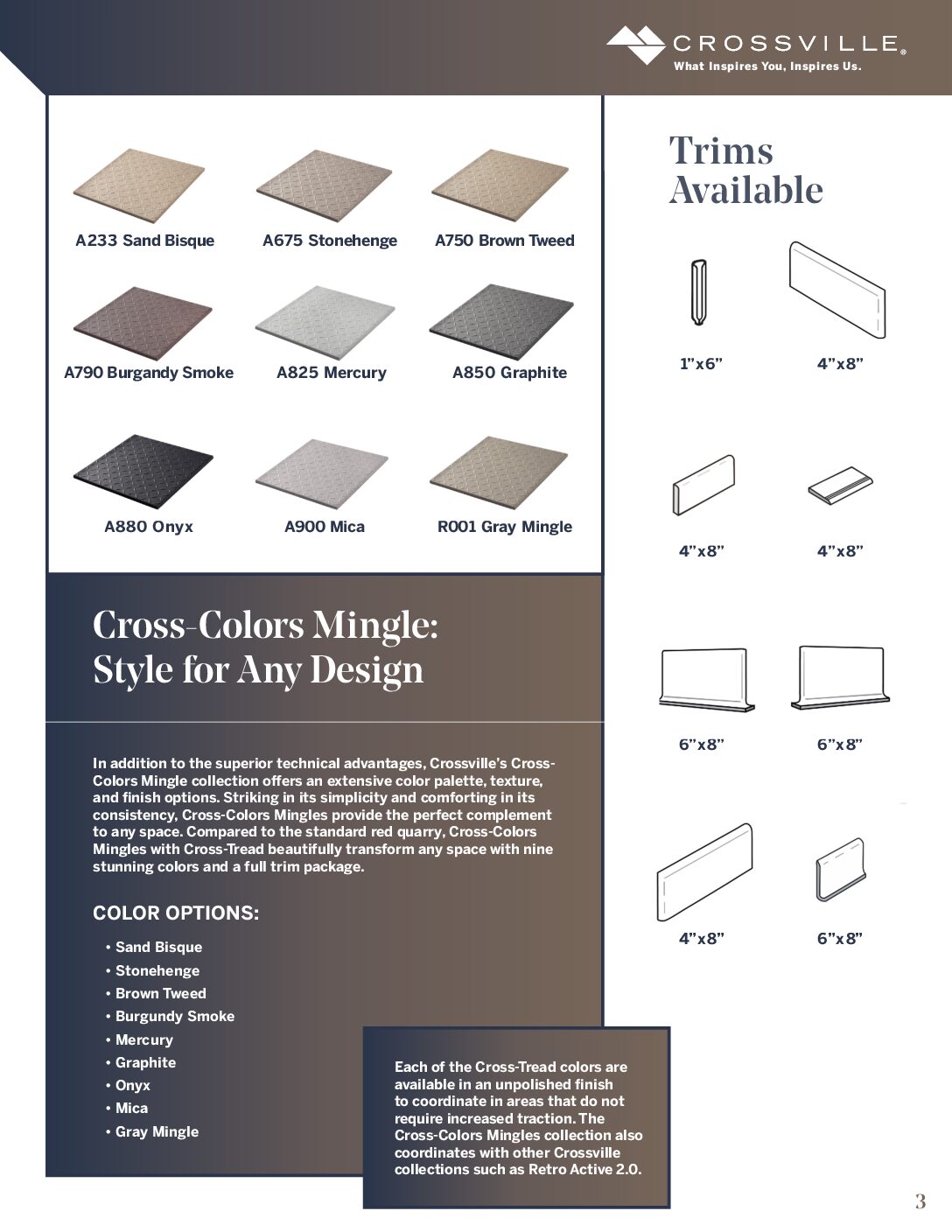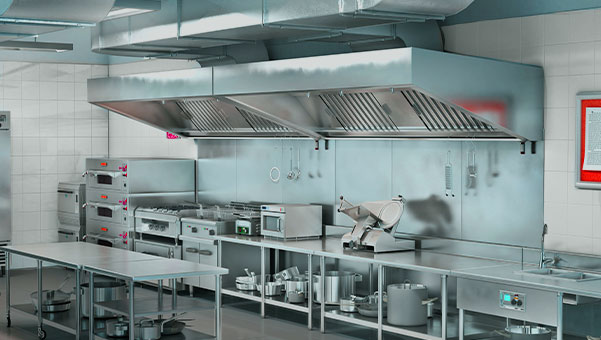Types of Tiles
Tile is one of the most sustainable building materials on the planet. It also promotes better indoor air quality since it doesn’t trap allergens like dust, pet hair, and pollen. When you choose to design with tile, you’re not only bringing style and durability to your space, but you are also choosing a material that can be recycled, used for a lifetime, and promotes cleaner environments.
PORCELAIN tiles are made from porcelain clays that are fired at very high temperatures which make them hard and dense with solid structures. The surfaces are water and stain-resistant, making them stronger and more durable. Porcelain tile is defined as any tile with a water absorption rate of 0.50 percent or less. Porcelain tile is a more refined and dense type of ceramic tile. Through-bodied porcelain tiles are not glazed as the color comes strictly from the body of raw materials. If a through-bodied tile is chipped, the broken part has the same color as the surface.
CERAMIC tiles are made of red or white clay and then fired and glazed/ decorated at lower temperatures than porcelain. The glazing provides the color and designs and makes the tile more durable. Ceramic tiles are prone to chipping exposing the white clay and are less resistant to frost.
QUARRY tile is a hard, paving tile made from ground minerals such as clay and shales. The tiles are formed and fired in much the same way as is used to make brick. Fired at temperatures of over 2,000 degrees, quarry tile is relatively low absorption and qualifies as vitreous, but quarry tile is not as dense as porcelain tile. Often thought of as being red from the clay material, quarry tile can also be brown, gray, or tan. Unlike ceramic tile and porcelain, quarry tile does not normally have a surface glaze layer.
TERRA COTTA tile is a category of ceramic tile. These tiles are created from a particularly porous and easily shaped clay with high iron content. Similar to ceramic tiles, terra cotta is fired at a relatively low temperature, and its surface remains quite porous unless it is glazed. Terra cotta has a characteristic reddish/brown color.
Cross-Tread® Advantages Compared to Quarry Tile
Crossville not only stays in front of the latest trends but also works with the design community to best understand market needs. Through a unique collaboration, Cross-Tread was developed in a joint effort between Crossville and experts from the restaurant industry to specifically address traction concerns caused by common conditions such as moisture and grease. With more than 5 million square-feet installed in commercial applications in the last decade, Cross-Tread is the technical solution for back-of-house in restaurant and hospitality spaces.
Tile Finishes
In addition to the type of tile, different tile finish textures will affect a tile’s recommended application, benefits and advantages, and overall look and feel. Crossville has developed a portfolio of distinctive finish offerings to add beauty and function to commercial designs, both indoors and out. The finished look and texture of a porcelain tile are determined, in part, by its finish, texture, or coating.
With more than 30 years of experience in manufacturing high-performance porcelain tile, Crossville’s Cross-Tech series was designed specifically to address high-traffic commercial areas that require increased slip resistance as well ease of maintenance. The textures are an integral part of the tile and cannot easily be worn down. Crossville offers two proprietary finish offerings specifically designed for slip resistance where enhanced traction is needed: CrossSlate® and Cross-Tread®.
Both of these finishes are available in select sizes of Crossville’s Cross-Colors Collection. CROSS-SLATE® The Cross-Slate® finish combines the rustic and textured feel of slate with the through-body color and durability of Porcelain Stone®. Through-body color, unglazed structured surface, and a variety of sizes provide value where enhanced traction is needed for hightraffic interior and exterior spaces. Cross-Slate is recommended for interior floors and walls, as well as exterior walls and exterior walking surfaces in both residential and commercial environments.
CROSS-TREAD® Increased slip resistance and ease of maintenance make this tile a suitable choice for wet and greasy floor areas, as well as for exterior walking surfaces. The Cross-Tread® surface pattern is eye-catching, making it a great option for transitional areas and for use as an accent tile.
Advantages Over Quarry Tile
1. Cross-Tread’s unique design keeps the foot elevated so that it does not come into contact with grease and other contaminants that may be found on the floor and helps prevent slipping.
2. Significant installation cost savings when epoxy grout is used. With narrower grout widths and shallower depths, the grout needed is cut by as much as 60%. Smaller grout joints also enable greater aesthetic appeal for modern styles.
3. All else being equal, Crossville porcelain tile weighs less than quarry tile which lowers the overall freight cost.
4. Crossville tile offers better technical characteristics due to the porcelain manufacturing process.
5. Crossville tile is readily available because it is manufactured in Crossville, Tennessee.
6. With larger tile sizes (8” x 8”) and fewer grout lines, less application time saves labor costs.
Superior Technical Advantages
In addition to the cost savings, Crossville porcelain tile with Cross-Tread offers numerous technical advantages compared to quarry tile.
Finishes Quarry 6” x 6”
Cross-Tread 8”x 8”
D.C.O.F ≥0.42 0.50-0.60
Moisture Absorption <3.0% <0.20%
Breaking Strength >350 lbf 350-420
lbf Joint Width +/- Qty.
Epoxy Grout SF Coverage 19 lb Unit 6” x 6”
Quarry Tile 3/8” 19 lb Unit 52 SF 8” x 8”
Cross-Tread 3/16” 19 lb Unit 170 SF

Cross-Tread can be installed in any application that requires additional slip resistance as the texture is ideal for restaurants, hospitality, automotive, industrial, and much more.
- Auto service bays
- Food industry
- Beverage industry
- Dairy production
- Chemical manufacturing
- Commercial kitchens
- Warehouse
- Areas of transition where wet applications are possible such as around fountains, pools, beverage stations, locker rooms, ADA ramps, and much more.
Messes are a part of life, especially in the restaurant and hospitality industries. The specification of tile makes life easier for everyone on staff because it is quick to clean and it endures high traffic beautifully with no compromise to appearance. All Crossville products require minimal care to maintain a satisfactory appearance and acceptable sanitation. In keeping with our long-standing position on sustainability, we recommend the use of low-VOC, non-hazardous, and non-polluting products for cleaning and maintaining tile.
Crossville’s porcelain tile collections are engineered to offer lasting durability providing great value for the life cycle of the product. Our premium porcelain tile performs beautifully and maintains its appearance even after years of heavy traffic. With Crossville’s vast selection of finishing and coating solutions, design projects can be completed with performance and style.

